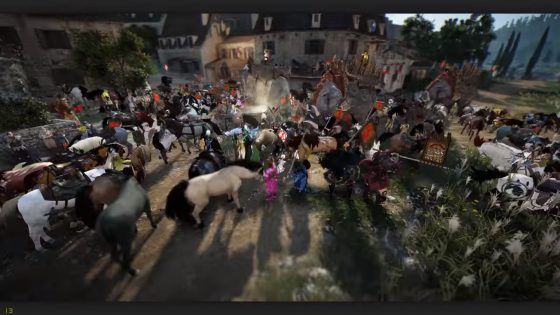The pay to win debate has once again been raging on around the MMO community, hot on the heels of the recent Black Desert Online changes and drama. This isn’t a new discussion though, and it has been a debate that has stuck around since the inception of free-to-play in varying forms. Unfortunately, it seems to have gained greater traction in recent times as we have begun to see different styles and types of microtransaction models, and how they begin to affect development and the overall experience.
It is a debate that has many different facets as well and a conversation where opinions can differ immensely based on personal belief or experience. Everyone has an opinion on what they consider pay to win but not enough is done to truly define what pay to win means. There are many distinctions to be made about what tiers there are of pay to win, and how these might affect the player and others around them.
Convenience
This is the most common form of pay to win by far and an element most don’t consider to fundamentally be pay to win, or at least not enough to worry about in the larger context of progression and power. These are often small buffs and additions to a character and account: a slight inventory increase each time, experience and other such buffs, and generally just quality of life elements that make the game more enjoyable to play.
But this can be looked at as Pay to Win as, in certain ways, the focus of these benefits and buffs is to save the player's time. Saving the player from sorting out their bags during their play, or going back to the vendor in order to sell and clean out storage lets them grind longer. Slight experience buffs that save the player time in their path of progression, gaining levels quicker than a comparable player. Buffs to gathering and crafting that save time during the process, and allow you to gain a greater amount of gold overall.
These buffs serve to create a greater efficiency of leveling and progression, which creates small, but definable differences between players of comparative time and effort. The more time played, the more these effects can be noticed and may have an effect on overall power.
Subscription
Another addition in the pay to win debate is the subscription, whose focus is on convenience and the optimization of play. Although, the reason I add it now is because these free-to-play business models often provide both options. Bought convenience items and a subscription with benefits. The problem with this is how it begins to add on the above differences between players progression, and in my mind is multiplicative over time - constantly increasingly and widening that gap with the amount of time played.
 Pay to win - always ready to strike
Pay to win - always ready to strike
A problem that the subscription does have, though, is that it seemingly adds more advantageous buffs to progression and the account at once, or over time as a way of enticing people towards it. The recent Black Desert Value pack removed a fair percentage of the auction house fees, which effects overall earning and imbalances the economy to a certain degree.
Other MMO’s often remove various restrictions that change the experience of progression dramatically like removing the cost of death, the restrictions on travel, or allowing more use of dungeons and other instances. These remove the usual cost of these mechanics that others must pay, saves a greater amount of time, or allows a greater chance at specific items and elements of power and progression.
Content Check
Now content is where a lot of the divisiveness begins in the pay to win discussion, although it isn’t an element we see much when it comes to PvP focused MMOs. We certainly do see content additions to games, and large ones at that but these usually aren’t purchasable additions and more just involve new areas, materials, and accessible items. They more add to the wealth of content that is already there but also play into the other monetization strategies within the game.
However, we do see a fair amount of paid styles of content in MMOs, such as small and large DLC packs all the way to large expansion pieces that change the state of the game dramatically,which also add new progression elements and power additions. Games like Rift add new classes and souls that can change how people play and add new counters or strong skills into the mix. Skill additions like the Thieves Guild, as seen in the recent Elder Scrolls Online DLC packs, add alternative progression elements - not to mention the usual level and gear increases that often come with the larger paid game additions.
These can and do create some large power differences between players that are felt throughout some of their PvP modes, and the effects on an open world experience is even more dramatic.
Buying Gold
Money is power, or so the belief goes and this is especially true in MMOs. In-game gold often translates into a certain amount of power, either by buying from a vendor or from other players. In sandbox style games it means a greater ability to craft and progress your gear through these aspects, and there are often numerous activities in game that need money to gain a certain advantage. Looking at Archeage, having gold allowed players access to the larger forms of transport earlier on, and for guilds to attain and hold castles easier, which in turn lead to a greater return of in-game gold.
Many MMOs are now giving the ability to purchase in-game money through the store, sometimes directly and other times through selling cash shop items. This then becomes the basis of real world wealth transferring into in-game power. Some games have limiting factors on how much you can purchase and sell, either limiting how much you can purchase, or how it is sold. This means a certain amount of In-game wealth being attained is not accounted for by the game’s internal mechanics and so, will obviously have an effect on players and the economy.
[caption id="attachment_66082" align="aligncenter" width="560"] Players gather against pay to win concerns[/caption]
Players gather against pay to win concerns[/caption]
This is of course the more blatant free-to-play monetization strategy we see in MMOs, although its effect does vary depending on the game. MMOs like Guild Wars 2 often get away with it because the have a normalized arena mode and a rather flat progression curve that is mostly worked through by account and daily limiters. Others like Black Desert online see a greater pushback because it becomes a progression booster on it’s own and has a more direct link to distinct power gains.
Purchased Power
And at the end of the pay to win tier, we have purchasing direct power increases from the Cash shop, and this seems to be the more obvious of the distinctions although not everyone agrees upon this definition either. This means being able to buy boosts to your health and energy or other elements of character power. The ability to buy gear as well, although the general consensus of pay to win gear power purchasing is that it is near, at, or beyond the current gear cap.
The big differences with this category is whether or not these power changes are available in game, and also how much effort goes into them. Easily obtained power items available in the cash shop usually don’t elicit much concern, but those that are completely unavailable or take an excessive amount of hours to attain gain far greater scorn. It is an obvious difference to view in theory, but we often see more obtuse styles in cash shops these days like potions and other styles of consumables that directly increase a player's power, but only for a limited time. And then there is the definition of how much of a Power buff, or addition is enough to be considered pay to win: a small amount of health, a large increase in mana regeneration, or the greatest weapon known to this world.
Concluding Thoughts
These are the general categories I’ve thought of but there are certain variations, or even other elements of monetization that I haven’t discussed, or may even have missed completely. I’m not attempting to give a consensus with these categories either, as our interpretations of what is worse, and what effects our play more will always change on a per person basis, and within each new game. It’s also an element of MMO business that has become a lot more complex in recent times, and it is far less simple than the early inventions of pay to win as companies attempt to avoid or obscure the difference and effects these might have. Or in how they might justify their addition. This will continue to change over time as new practices are developed and delivered but you can always rest assured that somewhere, on the forum of each new MMO, there will be someone crying out 'pay to win.'